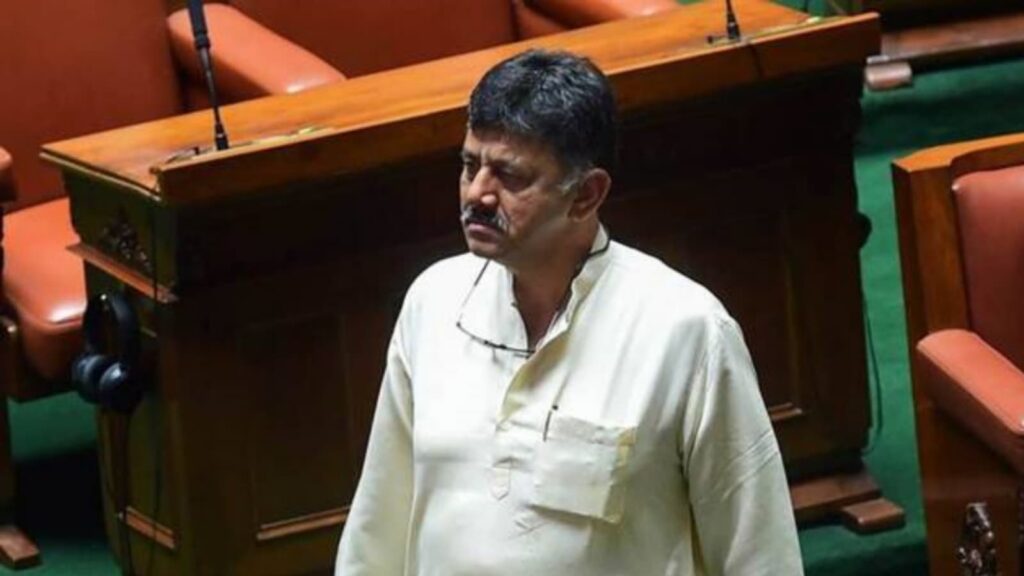Karnataka is set to launch the Greater Bengaluru Integrated Township (GBIT) at Bidadi, envisioned as India’s first and largest artificial intelligence-powered city, Deputy Chief Minister D K Shivakumar said on Thursday. Spread around 9,000 acres and located just 30 km from Bengaluru, the project will be developed as the state’s next central business hub, based on the work-live-play model.
Addressing farmers and officials at the deputy commissioner’s office in Ramanagara, Shivakumar said the Government was committed to building the township within the legal framework. “I am not ready to go to jail like former CM Yediyurappa by denotifying lands. This project will go ahead, but with complete transparency and fair compensation,” he said.
The “AI city” is designed as Bengaluru’s second central business district, with over 2,000 acres earmarked for AI-based industries and ancillary units. A 300-m-wide business corridor will connect major highways, including STRR, NH-209, NH-275, and NICE Road, ensuring seamless connectivity.
The township is expected to attract global investors, multinational corporations, and technology startups. It is also expected to create lakhs of job opportunities in information technology, AI, and services, with a “local-first” policy to ensure opportunities for Karnataka’s youth, according to officials.
“Lakhs of young people from our state will benefit from new jobs and skilling centres that will prepare them for AI-driven industries,” said Shivakumar.
By shifting economic activities to Bidadi, the project aims to ease Bengaluru’s traffic load with ring roads, expressways, and walk-to-work planning. Over 1,100 acres of parks and open spaces will make the Greater Bengaluru Integrated Township one of the greenest urban spaces in the country.
First proposed in 2006 during H D Kumaraswamy’s tenure as chief minister, the project has seen multiple delays, including withdrawal by developer DLF and central policy changes. It regained momentum in 2023, when the Greater Bengaluru Bidadi Smart City Planning Authority was upgraded as the Greater Bengaluru Development Authority.
Story continues below this ad
With the Cabinet approving the project in February 2025 and a preliminary land acquisition notification issued in March, the state government moved to implement the township after nearly two decades.
The township spans 8,493 acres across nine villages, including 6,731 acres of private land and 750 acres of government land, with 1,012 acres of waterbodies.
Shivakumar meets protesting farmers
Financially, the project is backed by over Rs 20,000 crore—Rs 2,950 crore from the Bengaluru Metropolitan Region Development Authority’s internal funds and Rs 17,500 crore from financial institutions with a state guarantee. “There has been some discussion on borrowing Rs 10,000 crore to provide good compensation to farmers. Let me assure you, we are ready with funds,” Shivakumar said.
Calling farmers “partners in development,” Shivakumar stressed that their interests would be safeguarded. “We don’t need to acquire even one acre more than what is notified, but I cannot release lands that are already under acquisition. Over 70 per cent of landowners—including Kumaraswamy’s wife and son—have already sought compensation. I will work with the remaining 30 per cent to find a solution,” he told farmers who were protesting against land acquisition plans.
Story continues below this ad
The project will feature a model rehabilitation and resettlement policy under the 2013 Act, providing annuities of Rs 30,000–Rs 50,000 per acre annually for landowners and Rs 25,000 per year for landless families until compensation is settled. Eligible families will also receive housing sites, employment support, and special certificates for education and jobs.
A 300-m-wide business corridor with 90-m arterial roads will connect the township to major highways, including STRR Road (9 km), NICE Road (11 km), Mysuru-Bengaluru Highway (5 km), and Bengaluru-Dindigul Highway (2.2 km).
The project also includes the rejuvenation of the Byramangala lake, with a proposed Rs 750–1,000 crore investment for lake treatment, wetlands, and parks. A 100 million-litres-per-day sewage treatment plant has been planned by the Bangalore Water Supply and Sewerage Board to support this initiative.
The joint measurement certification process will begin on September 11, with 15 trained teams using a mobile app to ensure transparency. The process will conclude within 90 days, with the final land acquisition notification due in December 2025.
‘Payouts for landowners within 30 days’
Story continues below this ad
The Government has also set a clear compensation and development timeline for the Greater Bengaluru Integrated Township. Monetary payouts for landowners will be completed within 30 days after the conclusion of the land acquisition process, while fully developed sites will be handed over within one year. The entire township project itself is targeted for completion within three years, according to officials.
Responding to farmers’ concerns, Shivakumar rejected calls for denotification, “There is no provision in law to take special decisions only for Bidadi. Any such move will affect all land acquisitions in Karnataka. We will proceed legally, ensuring fair compensation.”
On comparisons with past projects, he said, “DLF had taken this land but dropped it citing Vrishabhavathi water. Of the 9,600 acres, 912 acres were allotted for industries with compensation of Rs 1 crore per acre. No one opposed it then. Why oppose it now?”

